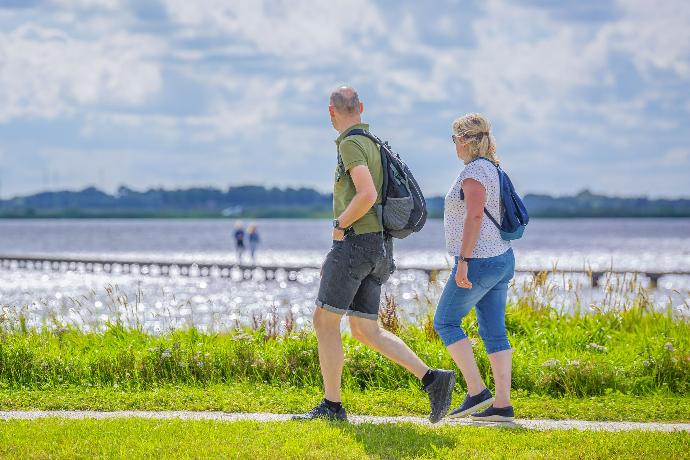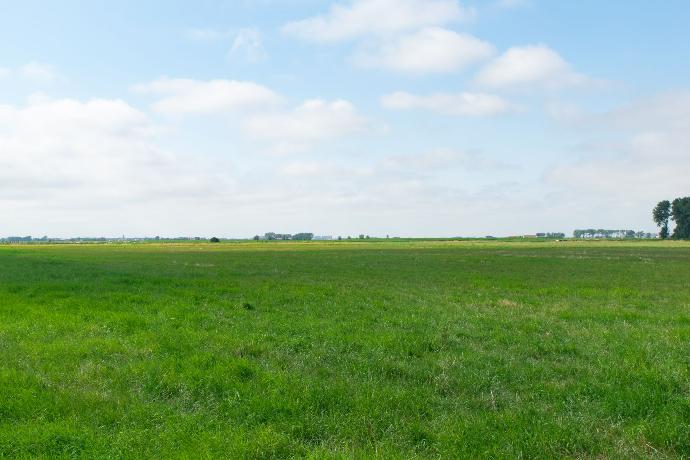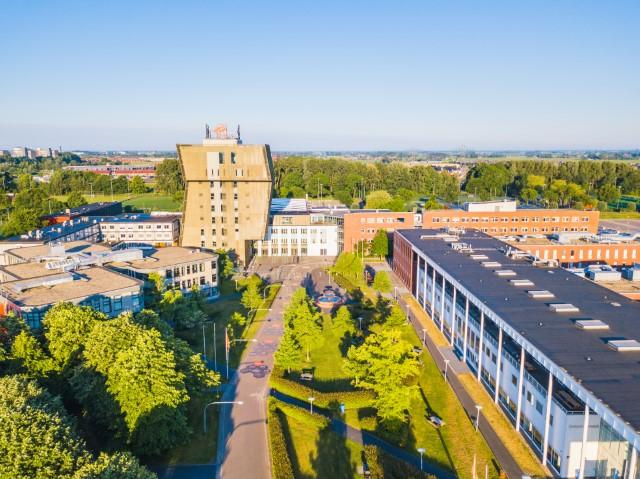Last October, the BUFFER+ kick-off took place in Groningen, the Netherlands. During this event, the partners didn't only get to know each other and the area 'Groeningen'. They also answered particular questions and gave recommendations in a so-called peer review. The municipality of Midden-Groningen, the municipality of Westerkwartier and the province of Groningen would like to share some of the results.
Restore peatlands and create healthy peat landscapes
- Payment of ecosystem services will help in the transition to wet and restored areas.
- The Innovation Workplace (IWP), where students, professionals and inhabitants gather, is something positive. Use this place to transform best practices, to suitable practices in this area.
- A challenge is to find a balance between climate change adaptation, water management in contrast to the priorities of the waterworks for Groningen, which has priority.
- Create natural water buffer areas to prevent major flooding, including of the city of Groningen (climate adaptation). “Wetlands for dry feet”.


Develop business and economic opportunities
- Implement multifunctional land and water use.
- Creation of moist hay meadows and herb-rich grasslands.
- Involve citizens where changes can affect recreational areas and local ecosystems.
- Compensation for farmers that are willing to practice with paludiculture and wet crops is needed.
- Involve residents in the designing process and seek examples from other countries.
- The soil structures change every few meters within the area, making it challenging to implement uniform measures such as ‘rewetting the area’ and implementing a successful Paludiculture crop. More detailed knowledge on the local soil conditions might be needed for a successful business/Waterfarm.
- In the development of paludicultures for a circular economy, there is a need for compensation for farmers who are affected by the changes in land use, such as converting low-lying polders into floodplains and combining water storage with wet crops.
- In time, the instrument of blue credits / water replenishment could be looked at and deployed.
Improve governance
Write one or two paragraphs describing your product or services. To be successful your content needs to be useful to your readers.
- Within the Innovation Work Place best practices can be transferred to other contexts
- A suggestion is to investigate ‘green finance’ in the Groeningen region to fund projects
- Involve sustainable industries and businesses and drinking water companies.
- Look to your neighbors: Friesland. They have been working with their peat strategy for years.
- Working together with the local community and focusing on regional area development is crucial. This includes forming regional partnerships to strengthen biodiversity, improve spatial quality, and develop robust nature based opportunities for farmers.

Conclusion
The future of peatland areas is uncertain. There is a foundation of knowledge and initiatives but there are also still significant gaps, particularly in understanding the local environmental conditions, the long-term viability of agricultural practices, and strategies for climate adaptation. It is important to involve citizens and come with a proper compensation for the landowners that are willing to experiment with wet crops and paludiculture.